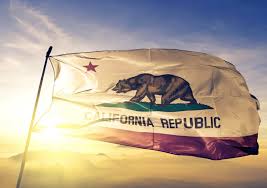California became the first state to explore the possibility of paying reparations to its Black residents as well as descendants of slaves after Governor Gavin Newsom signed the proposed bill on last week Wednesday. Written by Assemblywoman Shirley Weber, the new law commissions a nine-member task force to look into the effects slavery had on Black Californians and propose a compensation package to the state Legislature, according to NBC News. The team will also determine eligible recipients and the form the compensation will take.

“After watching last night’s debate, this signing can’t come too soon,” Gov. Newsom said during the announcement and signing of the bill on Wednesday.
“As a nation, we can only truly thrive when every one of us has the opportunity to thrive. Our painful history of slavery has evolved into structural racism and bias built into and permeating throughout our democratic and economic institutions,” he added in a statement.
The law, which was backed by both the Republican and Democratic parties, comes in the wake of the ongoing protests in the country against racial discrimination and systemic racism. The much anticipated presidential election is also a month away.
“This is an extremely important time for all of us. California tries to lead the way in terms of civil rights, and we have a responsibility to do that,” said Weber. She added: “California has come to terms with many of its issues, but it has yet to come to terms with its role in slavery. After 400 years, we still have the impact.”
Weber emphasized the bill, which was written in 2019, did not come about following the nationwide protests after the death of George Floyd and the COVID-19 pandemic, and how it laid bare the stark disparities in healthcare for Blacks and other people of color, NBC News reported.
“This is not just because of the circumstances we face. What happened is that, of course, those circumstances reinforced the fact that what we were saying all along was true,” she said. “Some think we’re just responding to the moment, but we’re responding to the history of California and the life of Black people in California and in this nation.”
“Free State” but not free
Though California was founded and joined the Union as a “free state” – meaning slavery was illegal – in 1850, some lapses in the state constitution allowed the practice to continue, according to the Los Angeles Times.
The state did not also welcome freed slaves at a certain point. A fugitive slave law that was passed in 1852 declared that fugitive slaves or enslaved people who fled to California or were brought there for labor before it achieved the status of a state were fugitives and still belonged to their slave masters – irrespective of whether they escaped or not.
The first governor of California, Peter Burnett, also called on the Legislature to pass a law prohibiting freed slaves from entering the state in 1849, the Los Angeles Times reports.
“Had they been born here, and had acquired rights in consequence, I should not recommend any measure to expel them,” Burnett said at the time. “They are not now here, except a few in comparison with the numbers that would be here; and the object is to keep them out.”
Per the fugitive slave law, slave owners could bring enslaved people to the state to work and also sell them on if they wanted to. Racial discrimination in the state metamorphosed into different forms – just like in other states in the US – and continued through to the Civil Rights Movement after slavery was abolished in 1865.

